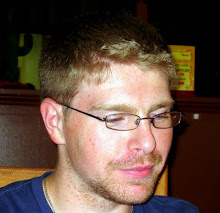Human Nature and the Institutions that Retain It
Mankind has not civilized itself by advancing as moral, or even ethical, beings, yet on the contrary, by the sole erecting of institutions to assist in the mitigating and the isolating of man’s nature.
Firstly, many thinkers from the French Enlightenment to modern Marxists, as well as numerous philosophers and social scientists, have emphasized the role of society over human nature.
English Philosopher John Locke thought of human nature as a “tabula rasa” or a “blank slate” with no rules or guidelines, only social experiences to direct the mind of the individual.
According to Australian Historian of Philosophy John Passmore, English Philosopher David Hume had “one thing he never doubted [that] was that there was such a thing as human nature. This was a point that he differed from Locke.”
Passmore added, “[Hume] says he thought [to deny human nature] was a ridiculous view, human beings do have angers, fears, all the rest of it… which are innate, which are inborn in them, and which are constant throughout human history.”
For one to aggressively underrate, or to casually dismiss, the historic observation that man seeks today the glories and treasures for which he sought at any yesteryear in his existence, denies flatly his biological nature and the limitations thereof to which these neurological attributes adjourn.
Secondly, the Framers of the American Constitution and the American System, in general, comprehended the role of human nature in mankind’s progress.
For example, James Madison stated, “What is government itself but the greatest of all reflections on human nature? If men were angels, no government would be necessary. If angels were to govern men, neither external nor internal controls on government would be necessary.”
With this perspicacious understanding, the Framers constructed fundamental institutions to check and balance, not the institutions themselves, but the human factor involved.
Due to these institutions, any individual spending time researching America’s prosperity, as well as much of the Western World’s, and the poverty of much of Latin America, Asia, and Africa will unearth much of the variance.
These nations lack the institutional structure to palliate the nature of man, himself. They rely on what American Economist Thomas Sowell would call the “Unconstrained” archetype of a leader.
Thirdly, in Sowell’s book, A Conflict of Visions, Sowell discusses two countering “visions”: the “Constrained” and the “Unconstrained”.
To clarify, “visions” are “the implicit assumes with which [one] operate[s].”
The “Constrained” maintains that human nature is flawed, yet fixed. The question then presented is how to design institutions to retain the flaws, while permitting one to live in the best social situation possible. More so, mankind is “Constrained” by his own human nature.
The “Unconstrained” argues that “the things that we suffer” are “the failure of other people to be as wise and as noble” as oneself. From this notion comes the Thomas Paine line, “to begin the world anew,” for institutions and virtueless men are causing this pain and suffering.
For examples of the applications of these “visions”, one need look only to 18th Century France and America.
Sowell explains, “In France, the idea was if you simply put the right people in charge and create the right institutions then all these problems would go away.”
Basically, with stationing a “political messiah” in power that loves the people, all then becomes well and good.
However, “[i]n the United States, it was assumed from the outset that there were very limited things you could do. What you needed to do above all was to minimize the damage done by the flaws of human nature.”
With this acceptance of human nature, constitutions and institutions are constructed for the purpose of diversifying the governing powers, so one may not control the multitude.
Finally, few current Americans--particularly, young ones--gather much in the way of political lessons from the Scottish Enlightenment, the Framers, and just history, in general.
With electing President Obama, America forgot or just dismissed the concerns of the Framers or the Founding Fathers, in general. But, Americans only shortly remembered the “Spirit of ‘76” once nationhood came to be. So, nothing is truly new.
Nonetheless, though, the elected individuals on the whole attempted and still so to implant the “Unconstrained” view in their constituents, for institutions bar their governing powers; hence, for the fortification of our liberty and individualism.
The fundamental institutions assembled by the Framers and at few other periods in our nation’s history have been the protection for us, as a people, not the men and women we have elected or will in the future do the same.
This column was not published this week for conflicting opinion on the use of the Opinion Page in a newspaper. I enjoyed the research for this column.

